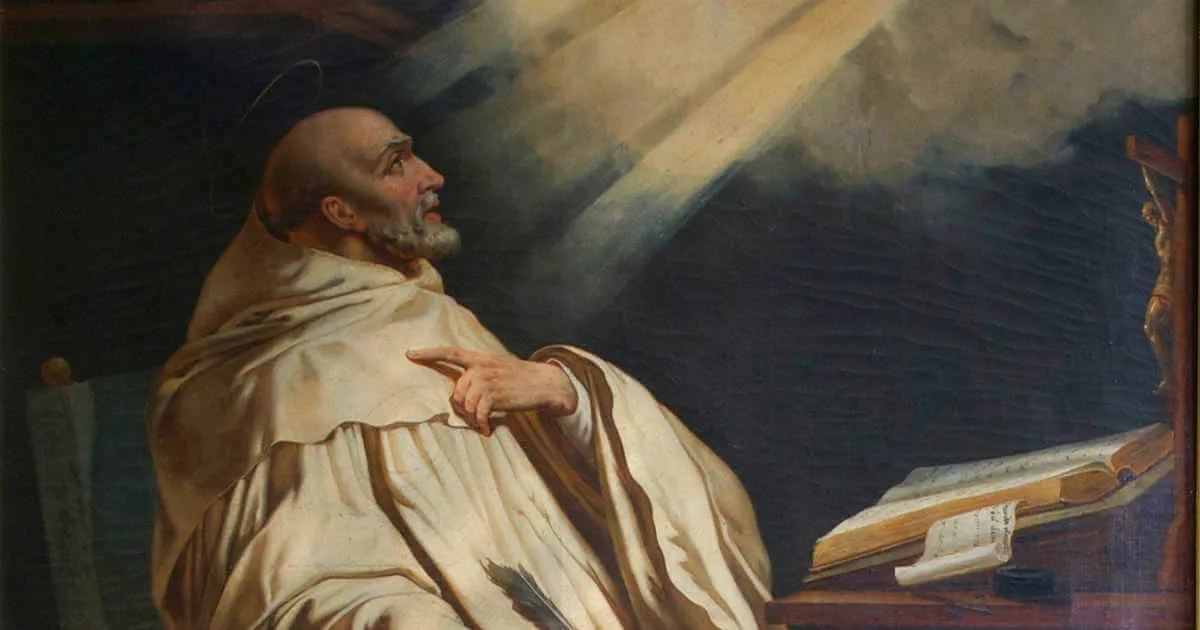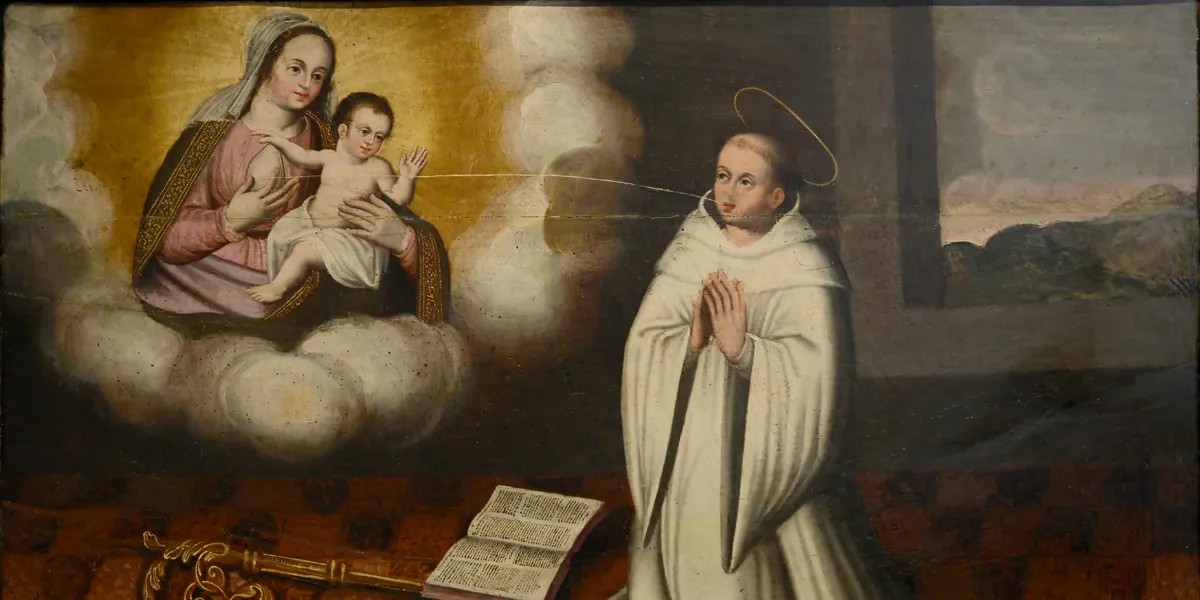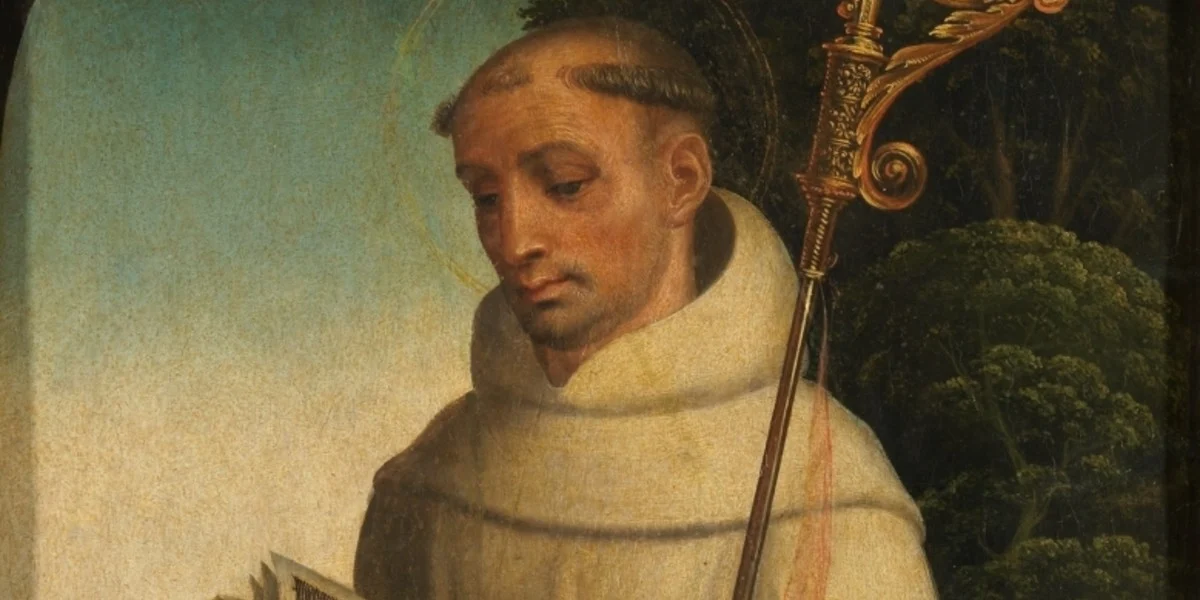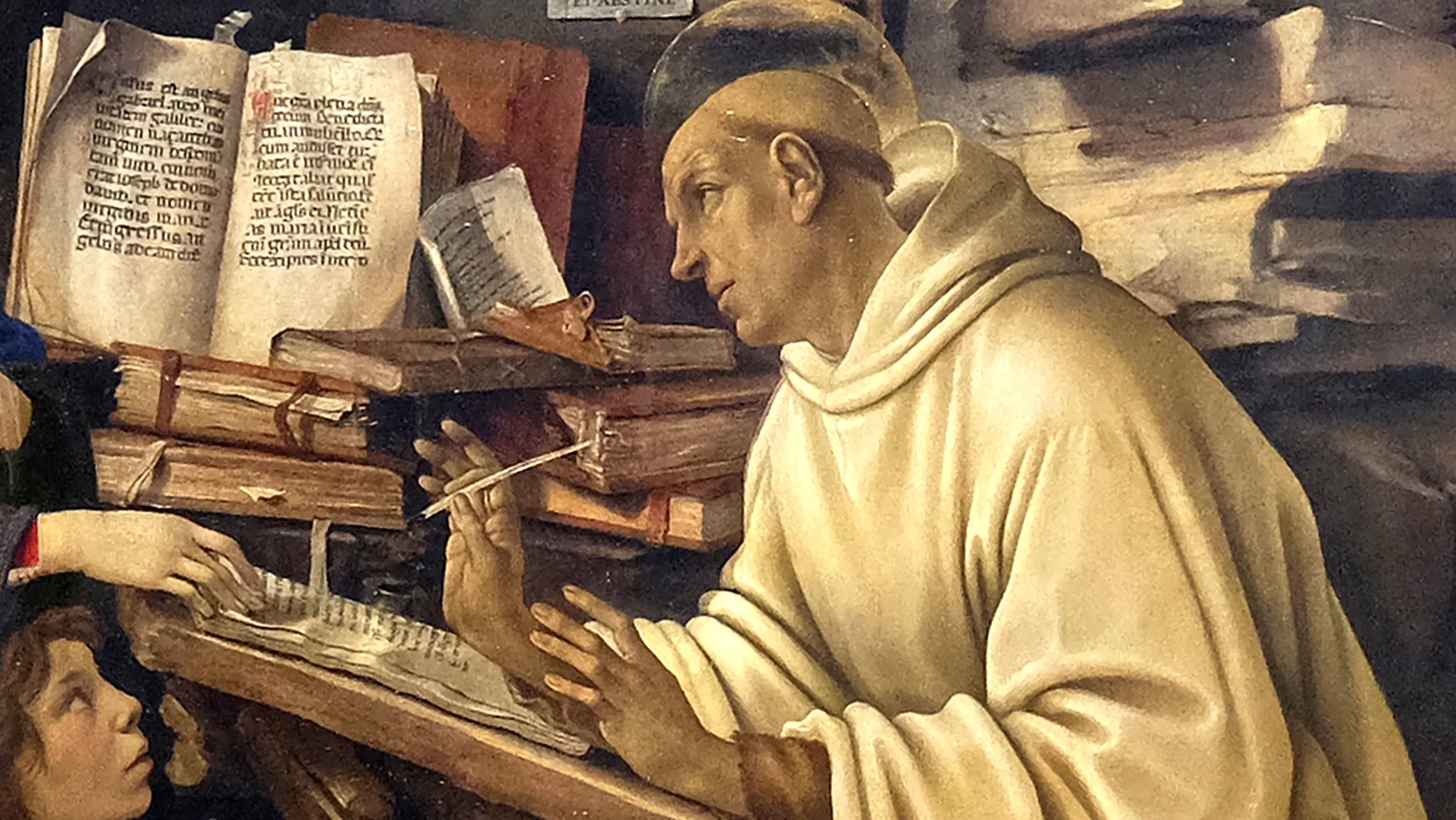If you’ve ever prayed a Memorare or been inspired by fiery preaching rooted in deep love for Christ, you might be surprised to learn that St. Bernard of Clairvaux played a huge role in shaping the Church—and the heart of Marian devotion—as we know it today.
So, who exactly was St. Bernard, and why does he matter to us today? Let’s take a look at this passionate monk who helped change the course of the Church.
From Nobility to the Monastery: The Life of St. Bernard
Bernard was born in 1090 into a wealthy noble family in Burgundy, France. He had everything the world could offer—status, education, opportunity—but his heart was set on something greater.
At age 22, Bernard shocked everyone by entering the newly founded Cistercian Order, a branch of the Benedictines focused on simplicity, silence, and prayer. Even more shocking? He brought 30 friends and family members with him. Talk about evangelization!
He later went on to found the monastery of Clairvaux, which became a center of spiritual renewal and influence. As abbot, Bernard led not just through discipline, but through deep love for Jesus—and a persuasive preaching style that moved hearts across Europe.
The Preacher Who Moved Popes and Kings
Bernard didn’t stay hidden behind monastery walls. Despite his desire for a quiet life, he was constantly called upon to preach, advise popes, settle theological debates, and even rally for the Second Crusade.
His preaching was known for being powerful, poetic, and absolutely centered on Jesus. He had a profound love for Scripture and wrote extensively about the personal, intimate love between the soul and Christ, especially through the lens of the Song of Songs.
One of his most famous lines?
“The measure of love is love without measure.”
Devotion to Mary and the Memorare Prayer
St. Bernard is also one of the Church’s earliest and most passionate promoters of Marian devotion. He often called her “Our Lady” and encouraged the faithful to run to Mary in times of trouble.
While the exact origin of the Memorare prayer is debated, its popular use is attributed to St. Bernard’s teachings on Mary’s intercession and love.
“Remember, O most gracious Virgin Mary,
that never was it known
that anyone who fled to thy protection,
implored thy help,
or sought thy intercession was left unaided…”
Why He’s Called the “Mellifluous Doctor”
St. Bernard is one of the Doctors of the Church, meaning his teachings have had a profound and lasting impact on Catholic theology. He’s known as the “Mellifluous Doctor” because his words were sweet, rich, and nourishing to the soul.
But his influence wasn’t just intellectual. Bernard constantly called people to conversion, humility, and total love of God. He preached that intimacy with Christ should be the root of all action, especially for those in ministry or leadership.
His Legacy Today
St. Bernard died in 1153 and was canonized just 21 years later. His teachings continue to shape Catholic spirituality, especially in the monastic and Carmelite traditions.
He is known as:
- The Mellifluous Doctor – for his beautiful, flowing sermons
- A Marian Champion – for his deep love and promotion of devotion to Mary
- A Reformer and Preacher – who helped bring clarity, courage, and renewal to the Church
But most of all, St. Bernard reminds us that holiness isn’t about hiding from the world—it’s about loving Jesus so deeply that you transform the world wherever you go.
Want to Imitate St. Bernard?
- Pray the Memorare when you need Mary’s help
- Read Scripture slowly and prayerfully—especially the Song of Songs
- Make time for silence and deep prayer, even in a busy life
FAQ: St. Bernard of Clairvaux
Q: When is St. Bernard’s feast day?
A: His feast day is August 20.
Q: Who was St. Bernard of Clairvaux?
A: St. Bernard was a 12th-century Cistercian monk, mystic, theologian, and powerful preacher who helped reform the Church, deepen Marian devotion, and inspire spiritual renewal across Europe.
Q: What is St. Bernard known for?
A: He’s known for founding the Abbey of Clairvaux, preaching the Second Crusade, promoting devotion to Mary, and writing beautifully about the love of God. He also helped heal Church divisions and guide popes and kings.
Q: What does “Mellifluous Doctor” mean?
A: “Mellifluous” means sweet or flowing like honey—Bernard was given this title because of the beauty and richness of his spiritual writing and preaching.
Q: Did St. Bernard write the Memorare?
A: While the exact authorship is debated, St. Bernard is strongly associated with the spirit and spread of the Memorare prayer through his promotion of Marian devotion and confidence in her intercession.
Q: Why is St. Bernard important today?
A: St. Bernard reminds us that love for Jesus must be the root of both action and contemplation. His life teaches us to combine deep prayer with bold leadership—and to trust in Mary as our intercessor.
Additional Resources
Learn how to pray the Memorare Prayer.
Read more about the saints on our blog:



